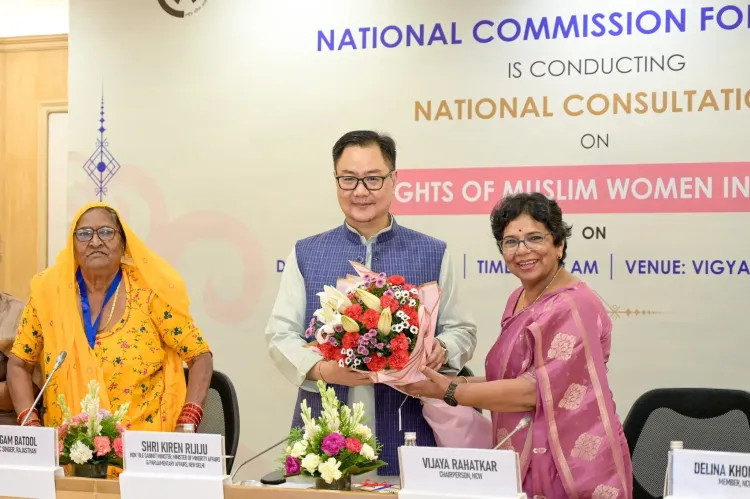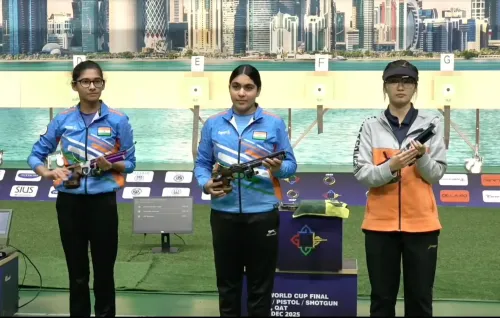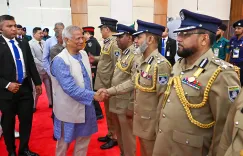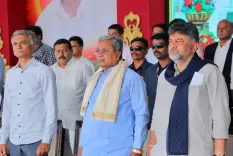How is Minister Rijiju Committed to the Inclusion of Muslim Women in Development?

Synopsis
Key Takeaways
- Empowerment of Muslim women is essential for societal progress.
- The economic prosperity of women leads to social empowerment.
- Consultation meetings provide a platform for marginalized voices.
- Legal frameworks must adapt to societal changes.
- Commitment to justice and human rights is a collective resolve.
New Delhi, Aug 1 (NationPress) Union Minister of Parliamentary Affairs and Minority Affairs, Kiren Rijiju, emphasized on Friday that Babasaheb Bhimrao Ambedkar stated long ago that the advancement of a society is directly tied to the status of its women.
During a consultation meeting held by the National Commission for Women on the theme 'Rights of Muslim Women in India', Rijiju highlighted that the empowerment and education of Muslim women regarding their rights is crucial for fostering inclusive development.
The Union Minister articulated the necessity of economic empowerment for women, noting that when women achieve financial stability, they gain power, and through this economic strength, they attain social empowerment.
Rijiju expressed his commitment to advancing the recommendations that emerged from the consultation.
Vijaya Rahatkar, Chairperson of the National Commission for Women, remarked that the Commission is diligently working to safeguard the rights and promote the welfare of Muslim women.
She characterized the consultation meeting as a vital forum for amplifying the voices of Muslim women in the realm of policymaking.
“This is not merely an event; it represents an effort to elevate voices that have long been overlooked. It is a collective commitment that no woman, irrespective of her background, will be denied justice, dignity, or human rights,” she stated.
Rahatkar further added, “When discussing the rights of Muslim women in India, simply referencing legal texts is insufficient.”
“We must also consider the evolving societal landscape, where it is essential to find a balance between tradition and progress. It is crucial to address the legal frameworks that ensure protection while also acknowledging the changing social context,” she explained.
Rahatkar conveyed on X, “The NCW is unwavering in its mission to uphold the rights of every woman and enhance their welfare. Our role transcends mere recommendations — we are dedicated to giving a voice to every victim and challenging the silence surrounding their issues.”
“In this spirit, our goal is to transform this consultation meeting into a formidable platform for integrating the voices of Muslim women into policymaking. This is an initiative aimed at providing a stage for those voices that have long been marginalized. It is a united determination that no woman, regardless of her background, will be deprived of justice, respect, and human rights,” she concluded.










